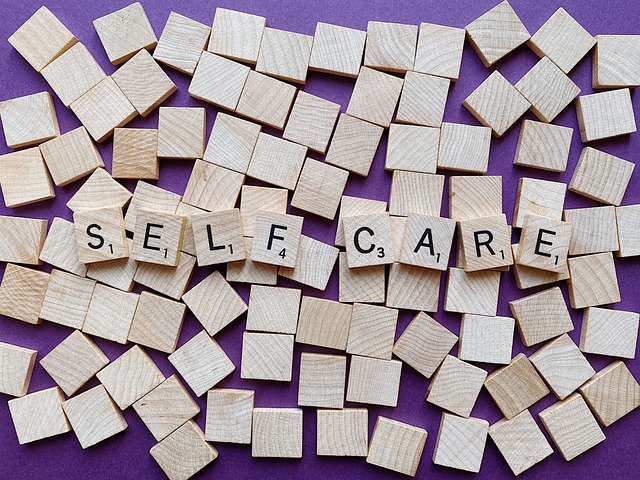Integrating wellness practices that include mindfulness and yoga into your daily routine significantly improves your ability to manage stress effectively. These practices enhance both physical and mental health by promoting flexibility, balance, and emotional regulation through yoga exercises, fostering tranquility and clarity via meditation, supporting overall well-being with healthy eating habits, and encouraging a positive outlook through gratitude journaling. Regular physical activity and deep breathing exercises further aid in stress relief and relaxation, while consistent self-care routines underpin the development of resilience and emotional strength to navigate life's pressures gracefully. This holistic approach to stress management encompasses a variety of strategies that collectively contribute to a balanced, fulfilling life.
In today’s fast-paced world, where demands on our time and mental bandwidth are relentless, cultivating resilience and managing stress are not just desirable—they are essential. This article delves into a multifaceted approach to enhancing your ability to withstand life’s pressures. We explore wellness practices that go beyond the surface, emphasizing the integration of mindfulness techniques, yoga exercises, and meditation practices as foundational tools for mental fortitude. Nutritional strategies are also examined for their role in stress reduction, highlighting how healthy eating habits can bolster your resilience from within. Furthermore, we examine the science behind regular physical activity as a potent stress management strategy, offering insights on tailoring exercise to fit any lifestyle and overcoming common barriers. Lastly, the article underscores the importance of embracing deep breathing, gratitude journaling, and self-care routines in nurturing daily resilience. Each section provides practical strategies to integrate into your routine, ensuring a holistic approach to managing stress effectively and maintaining wellness for sustainable health.
- Fostering Resilience Through Integrative Wellness Practices
- – Embracing a Holistic Approach to Stress Management
- – The Role of Mindfulness Techniques in Enhancing Mental Fortitude
- – Incorporating Yoga Exercises for Physical and Emotional Balance
Fostering Resilience Through Integrative Wellness Practices

Embarking on a journey to cultivate resilience through integrative wellness practices can significantly enhance your ability to manage stress effectively. At the heart of this approach lies the incorporation of mindfulness techniques, which encourage individuals to be fully present and engaged in the moment. These practices help in breaking the cycle of negative thought patterns that often exacerbate stress. Yoga exercises also play a pivotal role; by combining physical postures, breathwork, and meditation, they promote flexibility not just in the body but also in the mind, allowing for a more balanced emotional state. Additionally, consistent engagement in meditation practices can lead to a deeper sense of calm and clarity, offering a sanctuary of tranquility amidst life’s chaos.
Complementing physical activities with healthy eating habits is essential for maintaining the energy and focus necessary for resilience building. Nutrient-dense foods nourish the body and support brain function, which is critical during times of heightened stress. Integrating deep breathing exercises into your daily routine can act as an immediate stress reliever, helping to lower blood pressure and calm the nervous system. Furthermore, keeping a gratitude journal can shift perspectives from negative to positive, fostering a sense of abundance and well-being. Lastly, establishing self-care routines tailored to individual needs ensures that resilience is not just about bouncing back from adversity but also about thriving in the face of challenges with grace and fortitude.
– Embracing a Holistic Approach to Stress Management

Integrating a holistic approach to stress management involves a multifaceted strategy that encompasses various wellness practices and mindfulness techniques. Engaging in yoga exercises, for instance, promotes flexibility, balance, and mental clarity, effectively aiding in the reduction of stress levels. Complementing physical activity with meditation practices fosters an environment where one can quiet the mind and cultivate a sense of inner peace. Similarly, adopting healthy eating habits plays a pivotal role in maintaining energy levels and supporting overall well-being. Regular physical activity, not just intense workouts but also leisurely walks or cycles, contributes to the release of endorphins, which are natural stress relievers. Deep breathing exercises, such as diaphragmatic breathing, can be employed to activate the body’s relaxation response and alleviate tension. Furthermore, gratitude journaling is a powerful tool that shifts focus from stressors to appreciating life’s positive aspects, thereby creating a more optimistic outlook. These strategies, when woven together into self-care routines, form a robust framework for managing stress effectively and cultivating resilience in the face of life’s challenges.
Incorporating these stress management strategies into daily life requires commitment but yields significant benefits. For instance, consistent meditation practices can lead to enhanced focus and emotional regulation, which are essential components of resilience. Similarly, maintaining a balanced diet supports cognitive function and energy levels, crucial for managing stressors throughout the day. Self-care routines that include adequate sleep and leisure activities are also vital, as they allow for mental recovery and prevention of burnout. The practice of deep breathing exercises can be particularly effective in moments of high stress, offering a quick and accessible method to regain composure. By weaving these practices into the fabric of one’s daily life, individuals can strengthen their resilience and better navigate the complexities of modern life.
– The Role of Mindfulness Techniques in Enhancing Mental Fortitude

Integrating mindfulness techniques into daily wellness practices can significantly enhance mental fortitude and stress management strategies. These practices encourage a heightened awareness of the present moment, allowing individuals to navigate life’s challenges with greater composure. Yoga exercises, for instance, not only promote physical flexibility but also foster a state of calmness and concentration conducive to cultivating resilience. Similarly, meditation practices can lead to improved emotional regulation, as they teach the art of observing thoughts without judgment, thus diffusing their potential impact on one’s mental state. Engaging in deep breathing exercises before confronting stressors can activate the body’s relaxation response and provide a momentary sanctuary from anxiety. Additionally, gratitude journaling can shift one’s focus from negative to positive aspects of life, thereby reinforcing a sense of well-being and resilience.
Complementing mindfulness with healthy eating habits and regular physical activity further bolsters stress management efforts. A balanced diet provides the nutrients necessary for optimal brain function and energy levels, while consistent physical exertion releases endorphins that naturally alleviate stress. Self-care routines that incorporate these practices can serve as a holistic approach to maintaining mental health and resilience. By consciously integrating these elements into one’s lifestyle, individuals can build a robust foundation for withstanding life’s pressures and recovering from adversity with greater agility and grace.
– Incorporating Yoga Exercises for Physical and Emotional Balance

Incorporating yoga exercises into your wellness practices can significantly contribute to both physical and emotional balance, serving as a foundational pillar in resilience cultivation. The fusion of physical postures, or asanas, with mindfulness techniques encourages an awareness of the present moment, which is essential for managing stress. This mind-body connection facilitated by yoga allows individuals to develop a more attuned sense of self, enabling them to navigate life’s challenges with greater equanimity. Furthermore, regular practice can enhance flexibility, strength, and balance, not only in the body but also in one’s approach to daily stressors. Complementing these physical benefits are meditation practices that deepen the relaxation response and promote mental clarity. These practices often lead to a cascade of positive effects, including improved concentration, reduced anxiety, and a heightened ability to cope with stress effectively.
In addition to the physical exercises and mindfulness elements inherent in yoga, healthy eating habits play a crucial role in nurturing well-being. Consistent consumption of nutrient-dense foods supports the body’s resilience against stress by maintaining optimal health. When combined with regular physical activity, such as yoga, these habits form a comprehensive approach to stress management strategies that can enhance one’s overall sense of vitality and well-being. Moreover, integrating deep breathing exercises into your daily routine can help regulate the body’s stress response. These exercises, often taught in yoga sessions, can be a quick and effective way to induce a state of calm, allowing individuals to confront stressors with a clearer and more composed mindset. Lastly, maintaining a gratitude journaling practice and establishing self-care routines are additional techniques that foster resilience. These acts of reflection and kindness towards oneself can create a positive feedback loop, reinforcing one’s ability to bounce back from adversity with greater strength and resilience.
In conclusion, cultivating resilience and effectively managing stress are achievable through a combination of wellness practices tailored to individual needs. By adopting mindfulness techniques and integrating yoga exercises into daily routines, individuals can enhance their mental fortitude and emotional balance. Complementing these with meditation practices allows for deeper relaxation and introspection, fostering a more profound sense of inner peace. Additionally, maintaining healthy eating habits and engaging in regular physical activity contribute to overall well-being, while deep breathing exercises and gratitude journaling can further aid in stress management. Establishing self-care routines that incorporate these strategies not only bolsters resilience but also supports a sustainable approach to managing life’s challenges. Embracing this holistic lifestyle can lead to improved mental health and an enhanced ability to thrive amidst adversity.
